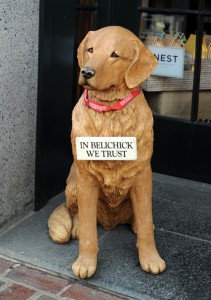
Bain Capital and its ilk have been the bane of American capitalism since the 1980s.
The Leveraged Buyout/Private Equity Story
Bain was part of the leveraged buyout (LBO) business which is now called ‘private equity’.
In the Reagan-Bush I years, these firms identified publicly-traded companies whose stock price didn’t reflect the value of their assets. They acquired the companies, paid themselves richly with money borrowed against the companies assets, and then refloated the debt-laden (leveraged) companies.
That’s a much simplified version of the business. Typically, the takeovers had a lot of pirates – law firms, investment banks, management consultants, etc. – profiting from fees on the initial transaction, for running the company until it could be flipped, on the restructurings and bankruptcies that often followed….
The flotsam and jetsam left by their Somali cutters – looted pensions, stripped factories and ‘structural’ unemployment – continue to pollute just as the debris from the Tsunami in the north Pacific will for many years to come.
That’s old news. Since it’s currently unfashionable to sympathise with those whose jobs and savings have disappeared, the Bain stories haven’t evoked the outrage they should.
Part of the problem is it’s hard to get your head around Americans doing unto Americans what Mexican bandits did to Mexican peasants in ‘The Magnificent Seven’: loot the village, steal all the food and the seed, and wait for the farmers to regroup so they can do it again.
If that seems exaggerated, look at the history of United Airlines’ LBOs.
The LA Times Story
Another part of the problem is the reporting on Bain.
Take, for instance, today’s stunner in the LA Times on Bain’s early investors. (H/T: Mike Allen at Politico Playbook 7/19/12.) But before ripping into its deficiencies, I have to say the story presents valuable reporting on underreported aspects of Mitt Romney’s business life.
The Panama Story
The first LA Times bombshell is that in 1984, ‘Most of the foreign investors’ money came through corporations registered in Panama, then known for tax advantages and unusual banking secrecy.’
Panama was also known for its flag-of-convenience shipping, drug trafficking, money laundering and safe haven for crooks and criminals of all persuasions. Five years later, the US under Bush I invaded the country and kidnapped its president, Manuel Noriega.
Noriega had been portrayed as the key to drug transit and money flows from the US. The only thing that can be said with certainty about the affair is it had no lasting effect on the drug trade or the drug wars.
Eight paragraphs in, the LA Times tells us one of those using the Panamanian vector was Sir Jack Lyons who, three years later, would be involved in the Guinness share trading scandal for which he would be fined £3 million and lose his knighthood.
The Salvadoran Story
The next paragraph: ‘About $9 million [of Bain’s $37 million] initial capitalisation] came from rich Latin Americans, including powerful Salvadoran families living in Miami during their country’s brutal civil war.’ The term for such money is ‘flight capital’.
Later in the article:
Among the Bain investors were Francisco R.R. de Sola and his cousin Herbert Arturo de Sola, whose brother Orlando de Sola was suspected by State Department officials and the CIA of backing the right-wing death squads, according to now-declassified documents.
Orlando de Sola, who has denied supporting the death squads, is now serving a four-year prison term for unrelated fraud charges. In an interview at the prison in Metapan, El Salvador, he said he did not benefit from the family investment in Bain Capital.
Before Bain, the family’s holdings were based in El Salvador, he said. “I would say their relationship with Bain Capital was a step to diversify into foreign investments. But I insist to you, I was not part of it.”
Given the tens of billions sunk into El Salvador’s proxy wars – recall the Iran-Contra scandal of Reagan’s last two years in office (1986-88) – querying the origins of the Salvadoran money is worthwhile.
Iran-Contra touched the very highest levels of the Reagan-Bush I Administration. The long war resulted in the displacement of millions, some of whom moved to the US and started powerful criminal enterprises in some of the same lines as the Panamanians.
The Maxwell Story
A few ‘graphs on, the Times tells us:
Other early investors included Robert Maxwell, the British publishing baron, who invested $2 million [of the $37 million]. After his drowning death in 1991, investigators discovered Maxwell had stolen hundreds of millions of dollars from his company’s pension funds.
At this point, I lost it: first the delicacy of the Times description of a catastrophe for Maxwell’s employees and creditors and the publishing business, but the lack of context….
Maybe Mitt Romney could see the Salvadorans as patriots in exile. Jack Lyon’s criminal prosecution was five years in the future. But Robert Maxwell?!
For a business resting on finding hidden value in companies, its investors tell us much about its priorities, if not its due diligence. None more so (at least as of this moment) than Robert Maxwell.
In 1969 in a case so well publicised that even this then undergraduate knew about it, the UK Department of Trade & Industry concluded of Maxwell’s administration of a company (Pergamon) he headed:
We regret having to conclude that, notwithstanding Mr Maxwell’s acknowledged abilities and energy, he is not in our opinion a person who can be relied on to exercise proper stewardship of a publicly quoted company.
It sounds like a verdict on the entire leveraged buyout/private equity business, on the Michael Milkins and Mitt Romneys….
A quaint saying goes that someone who lies down with dogs gets fleas. Maybe Mitt’s Golden Retriever rode on his station wagon’s roof because his owner had quite enough.
Recent Comments